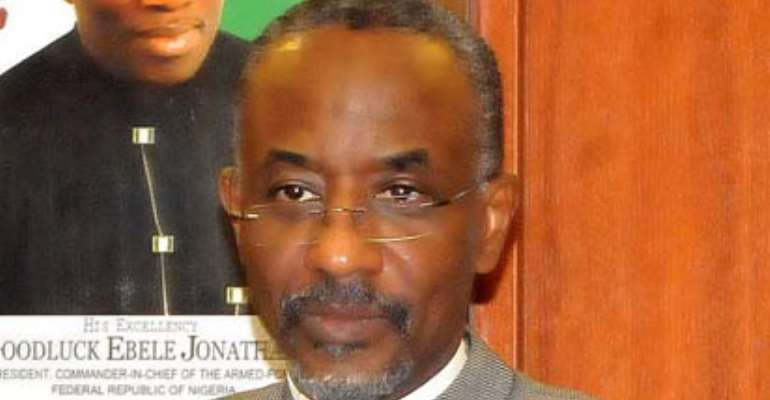Monetary policy: CBN raises CRR on public sector funds, retains rates on MPR, LR

The Central Bank of Nigeria (CBN) has raised the Cash Reserve Ratio (CRR) on public deposits from 50 per cent to 75 per cent with effect from next month.
The Governor of the apex bank, Mallam Sanusi Lamido Sanusi, who announced the new measure to further tighten monetary policy, in Abuja, yesterday, said the action was necessary to save the Naira from further fall in value.
The Monetary Policy Rate (MPR) remains at 12 per cent +/- 200 basis points and liquidity ratio (LR) at 30 per cent while private deposits' CRR remains at 12 per cent.
He expressed concern over the continued depletion of the Excess Crude Account, ECA, which balance stood at less than US$2.5 billion on January 17, 2014 compared with about US$11.5 billion in December 2012.
'This absence of fiscal buffers increased our reliance on portfolio flows thus, constituting the principal risk to exchange rate stability, especially with uncertainties around capital flows and oil price,' he said.
On the depletion of fiscal buffers, the committee decried the continuous fall in revenue from oil despite stable price of oil and production in 2013.
Although the committee acknowledged output losses due to theft and vandalism, this could not wholly explain the magnitude of the shortfall in revenue.
As a consequence, accretion to external reserves remained low while much of the previous savings have been depleted, thereby undermining the ability of the Central Bank to sustain exchange rate stability.
He said: 'On the depletion of fiscal buffers, the committee decried the continuous fall in revenue from oil despite stable price of oil and production in 2013.
'Although the committee acknowledged output losses due to theft and vandalism, this could not wholly explain the magnitude of the shortfall in revenue.'
As a consequence, accretion to external reserves remained low while much of the previous savings have been depleted, thereby undermining the ability of the Central Bank to sustain exchange rate stability.
The committee therefore, urged the fiscal authorities to block revenue leakages and rebuild fiscal savings needed to sustain confidence and preserve the value of the naira.
Sanusi noted that reserves had fallen to $42.85 billion, representing a decrease of US$ 0.98 billion or 2.23 per cent compared with $ 43.83 billion at end-December 2012, in spite of good international oil market prices in 2013.
The governor, therefore, urged the 'fiscal authorities to block revenue leakages and rebuild fiscal savings needed to sustain confidence and preserve the value of the naira.
He expressed concern about the widening gap between the official and the BDC exchange rates, noting that this could precipitate speculation and round-tripping.
'Though, the BDCs represent a small component of the foreign exchange market, the widening spread appeared to have fed into creeping increases in core inflation,' the CBN boss said.
He, however, re-affirmed the bank's commitment to a stable exchange rate regime while urging the fiscal authority to provide support by reducing fiscal leakages, improving controls around oil revenues and reviewing terms around production sharing agreements with oil companies, while awaiting the passage of the Petroleum Industry Bill, PIB.
According to him, there was need for a complementary monetary policy response to ensure sustained exchange rate stability and convergence of rates in various segments.
CBN, he said, was faced with either of two options: either allowing a depreciation of the Naira to avoid further tightening and depletion of reserves or maintaining our commitment to currency stability while stressing that monetary policy is almost at its limits and needs support from the fiscal side in the form of excess crude savings if currency stability is to be maintained in the future.
In the end, Sanusi said the monetary authorities settled for the later because 'the costs of a weaker naira far outweigh the benefits to the Nigerian economy and the core mandate of the CBN.'
The CBN boss who presided over the last Monetary Policy Meeting before his exit from the bank pledged to take 'immediate steps to redress the supply-demand imbalance in the Bureau de Change segment of the forex, while maintaining its focus on Anti-Money Laundering, AML, activities.'
He, however, tasked the fiscal authorities to immediately act to save the economy, as according to him, the monetary policies were at their limits.
